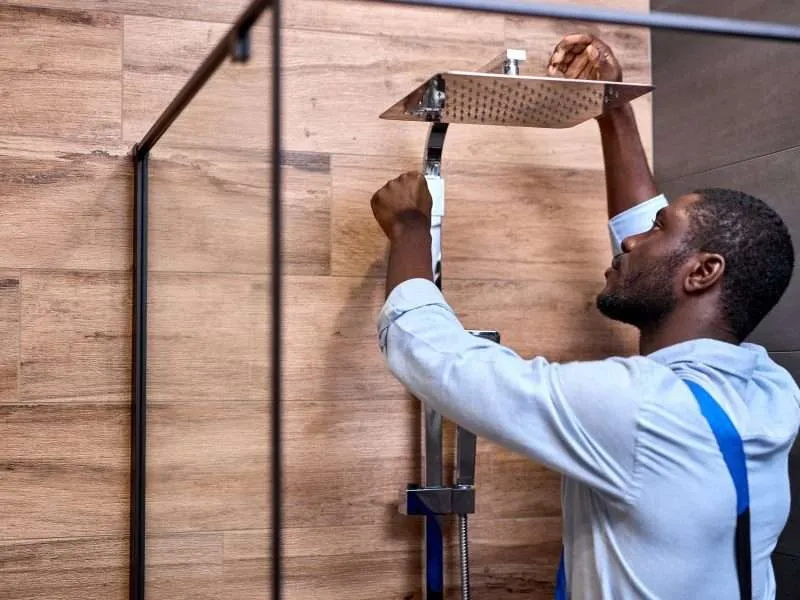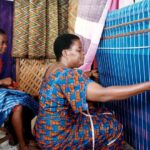By Destiny Uko
Do-it-yourself (DIY) repairs are common in many Nigerian homes and offices. Many families bypass professional services in the event of plumbing, wiring, or electrical mishaps, relying on instincts or little technical knowledge. This is largely to save cost and time.
While this trend serves as a survival tactic in harsh economic times, it isn’t without risks and consequences.
Several factors are responsible for this growing trend of DIY repairs. One of them is the high cost of hiring electricians, plumbers, and other artisans, especially in urban areas.
Additionally, with the growth in unemployment and economic instability, many young Nigerians have turned to picking up home repair skills, both for cost-saving and as a substantial side hustle.
There are hundreds and hundreds of “how to” videos online, thanks to streaming platforms like YouTube, Facebook, Instagram and TikTok. With just a few searches and minutes before a tutorial video, people already feel ready to repair a faulty electric cooker or install a new ceiling fan.
The unreliability of some of these service providers, who often arrive late or do not show up in the first place, has spurred many into taking care of things on their own.
However widely practiced, DIY comes with its share of risks. Attempting to fix sockets or faulty wiring without precaution and expertise can cause electric shocks, fires, or even death. The same applies for gas repairs and plumbing jobs. The mishandling of leaky gas cylinders can result in explosions, especially when not properly sealed.
Attempting to fix tiles, doors, or roofs without the right skill can cause structural weakness, posing serious safety risks in the long run.
Aside from damage to property, DIY can also pose health risks. Without the appropriate posture, the right tools, or protective gear, persons involved may develop back pain, deep cuts, falls, or exposure to harmful chemicals.
In some cases, failed DIY efforts can even nullify home insurance rights or create liabilities that would not have arisen with professional consultation.
The goal is not to wholly discourage people from taking initiative, especially in minor repairs. Instead, safer and more practical alternatives are advised. There are now tech platforms like Fixit45 and HomeFix Africa that connect people with trained, tested and trusted professionals and artisans. These platforms provide more affordable and reliable services, which in turn reduce the temptation to DIY without the required expertise.
In some communities, residents are coming together to pool funds to pay for all-inclusive home services, which eases the costs for those involved.
Organisations like LEAP Africa and Think Electric Africa are also making an impact in their own right by equipping young people with the technical skills they need to safely carry out such repairs or offer them as a service to others.
Public awareness of what is safe and unsafe to fix and when to draw the attention of an expert is also key. If more Nigerians knew the line between simple fixes like changing a bad bulb and risky tasks like connecting electrical wires, fewer accidents would occur.
For those who still wish to do minor tasks themselves, there are basic rules that must be adhered to. The main supply of power or water should always be turned off first. Protective gloves and safety glasses should be worn. Instruction manuals and booklets should be read thoroughly.
A first-aid kit should always be handy. Instead of trusting your instincts in times of confusion or perceived danger, call the attention of the relevant persons with the technical know-how.
While fixing things yourself may seem smart in the short run, it is crucial to consider the long-term risks. Always consult a technical expert for advanced repairs, including minor ones if you have no prior experience. The smartest decision is often the safest one, and that points to finding a balance between affordability and expertise.
In Nigeria, the trend of do-it-yourself (DIY) repairs is growing as families aim to save costs by avoiding professional services for plumbing, wiring, and electrical mishaps. The high cost of artisans, unreliable service providers, and the availability of online tutorials have fueled this practice. Many young Nigerians learn repair skills as a cost-saving measure or side hustle amidst economic instability. However, DIY repairs pose significant risks, including electric shocks, fires, gas explosions, structural issues, health hazards, and potential insurance nullification.
While the initiative to handle minor repairs is not discouraged, safer alternatives are recommended. Platforms like Fixit45 and HomeFix Africa offer affordable, reliable professional services. Community pooling of funds for home services is another effective strategy. Organizations such as LEAP Africa and Think Electric Africa equip young people with essential technical skills. Public awareness of safe versus risky repairs and adherence to safety protocols is crucial in preventing accidents. For complex tasks, consulting a professional remains the safest and most prudent choice.






